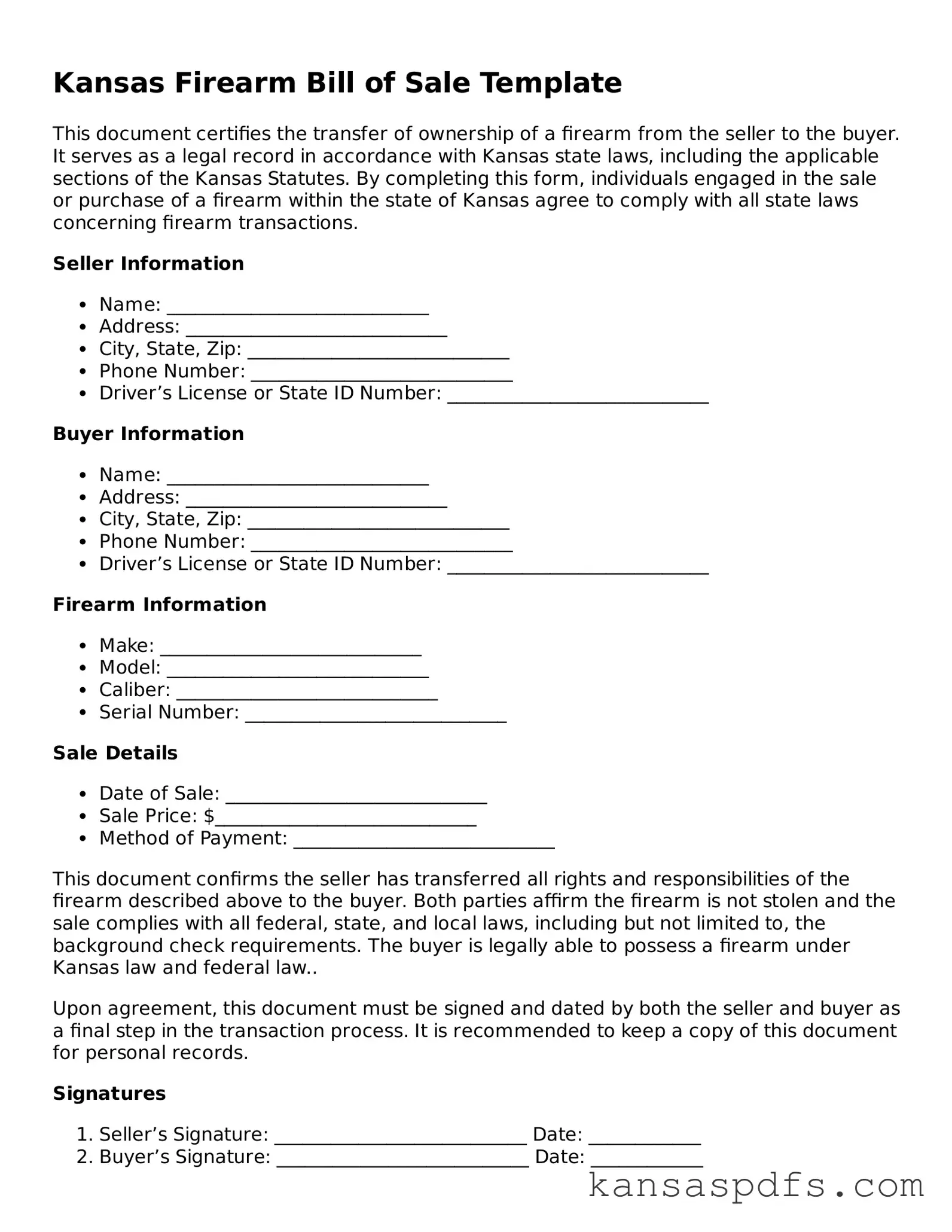What is a Kansas Firearm Bill of Sale form?
A Kansas Firearm Bill of Sale form is a legal document that records the transaction of a firearm from a seller to a buyer within the state of Kansas. It serves as proof of ownership transfer and includes details such as the make, model, and serial number of the firearm, as well as the personal information and signatures of both parties involved. This form is an important piece in ensuring that the sale adheres to all state regulations and legal requirements.
Do I need a Kansas Firearm Bill of Sale to sell a firearm privately in Kansas?
Yes, while Kansas law does not explicitly require a bill of sale for private firearm transactions, it is highly recommended to complete one. Having a Kansas Firearm Bill of Sale form provides written evidence of the transaction and the transfer of ownership, which can be crucial for legal protection and record-keeping. It helps both the buyer and the seller by outlining the specifics of the sale and can assist in resolving any future disputes regarding the firearm's ownership.
What information needs to be included in a Kansas Firearm Bill of Sale form?
The Kansas Firearm Bill of Sale form should include detailed information to accurately document the transaction. Essential details include the date of sale, the names and addresses of both the buyer and seller, a description of the firearm (including make, model, and serial number), the sale price, and the signatures of both parties. Optionally, it can also mention any warranties or declarations about the firearm's condition and legality of ownership by the seller.
Is notarization required for a Firearm Bill of Sale in Kansas?
No, the state of Kansas does not require a Firearm Bill of Sale to be notarized. However, having the document notarized can add an extra layer of legal protection and authenticity to the transaction. Notarization ensures that the signatures on the form are verified, making the document more credible in case its validity is questioned in legal scenarios.
How should a buyer or seller store a Kansas Firearm Bill of Sale?
Once completed and signed, both the buyer and seller should keep a copy of the Kansas Firearm Bill of Sale for their records. It is advisable to store the document in a secure location, such as a safe or locked filing cabinet. Keeping this document can be very important for future reference, especially in situations where proof of ownership is required, such as insurance claims or legal investigations related to the firearm.

